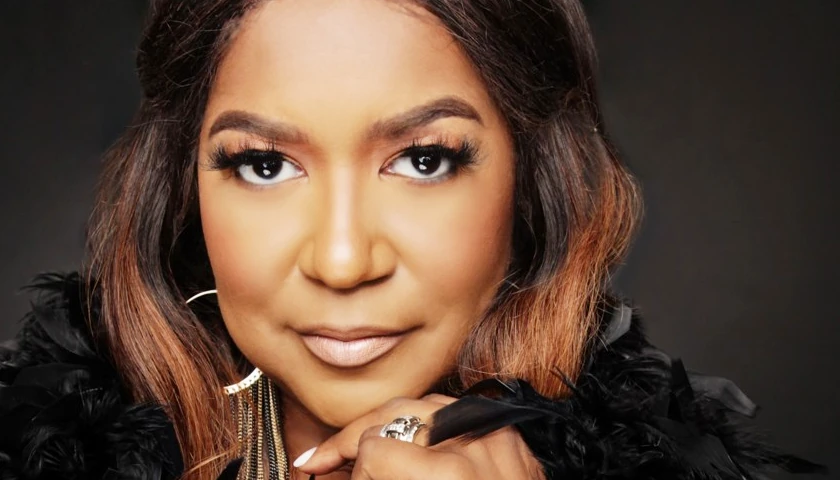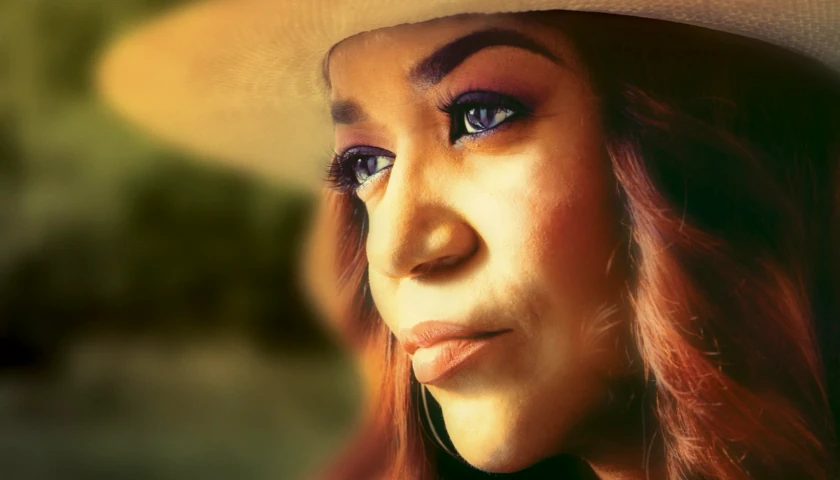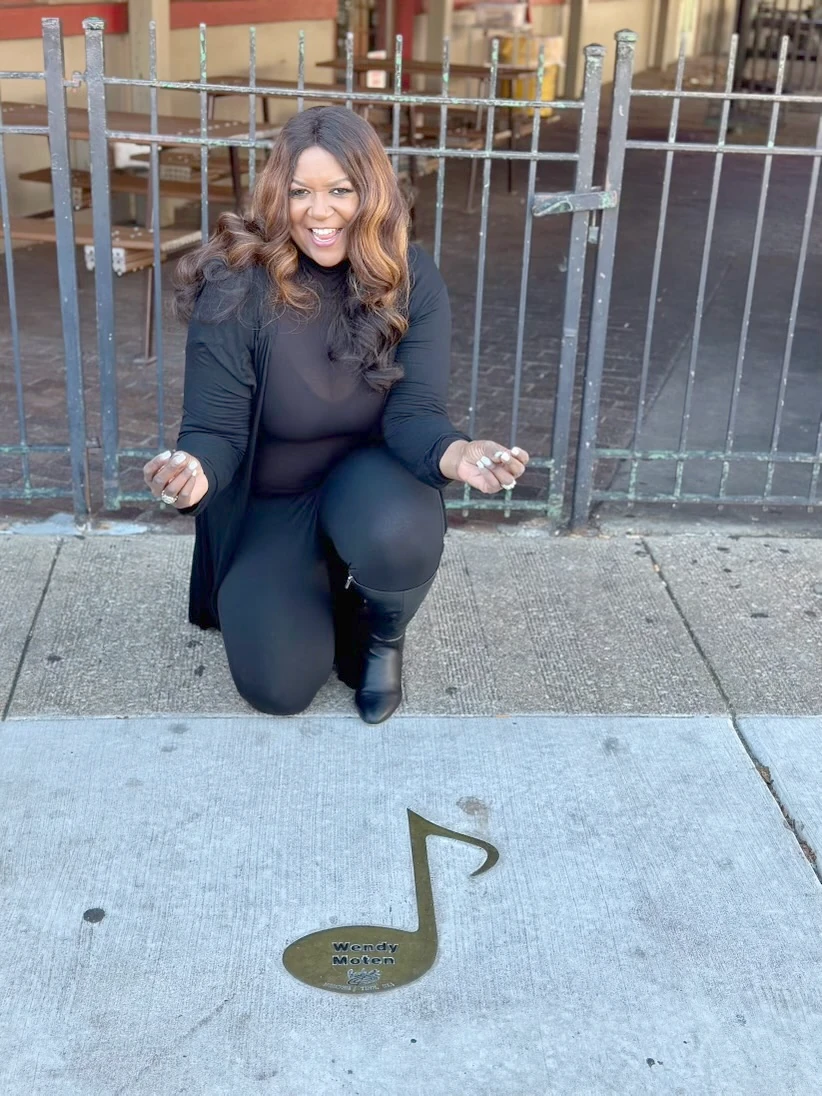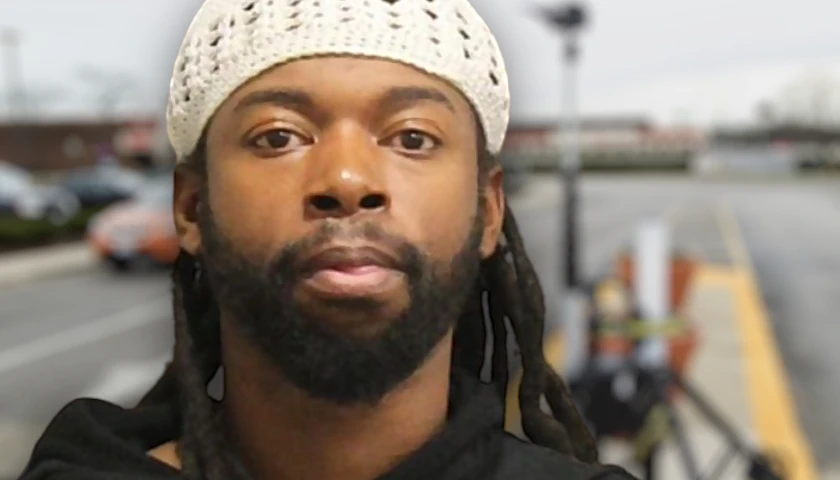Not long after I started writing my Music Spotlight column, I came across one of the greatest voices I’d ever heard in Nashville, Wendy Moten. I even gave her a shoutout when Heidi Newfield released her Barfly Sessions record in 2020.
After Moten rose to fame as the runner-up on NBC’s The Voice in 2021, the rest of the world saw how fabulous she was, and I knew getting an interview would be more of a challenge.
Fast-forward to August of this year, when Robert Earl Keen was playing the Riverside Revival. I saw a familiar figure hiding in the back of the sold-out venue. I politely asked if she was Moten and explained who I was. She said she was there supporting her longtime partner, David Santos, who was playing bass for Keen, and she thought no one would recognize her.
When I finally interviewed Moten, I wanted to hear the whole story. How does one develop such talent like hers? It turns out it was God-given.
She explained, “I had a gift, and my father was a pastor. He had five daughters, and we were at church three days a week, so he knew where we were at all times.”
Their family’s early favorites were Tremaine Hawkins and the Hawkins family, renowned for the (still) biggest gospel song ever, “O Happy Day.”
“I was the Tremaine Hawkins of our church in my family,” she admitted.
Often, artists are pegged as “genre-less,” but when I say Moten can sing ANYTHING, it’s no joke. Whatever the occasion or song needs, the Memphis native can bring it.
Moten is just a couple of years younger than me, so with her big vocals, she was often compared to Whitney Houston, Dionne Warwick, and Barbara Streisand, which are pretty big shoes to fill, even for one as talented as she was/is.
But her biggest influence was Aretha Franklin. She said, “Whenever she was singing, I would stop doing whatever I was doing as a kid to listen to her because she was always singing from the spirit and gut. That’s why she resonated with so many people; it was a spiritual thing.”
Before her father was a pastor, he was a musical director who still dabbled in it to make extra money. Until there was email, social media, or iTunes, her dad would teach choirs the newest songs they were out so people would learn about them.
She said fondly of her father, “I was with him during all that time. I was building up my ear training. He taught me how to treat people and encourage people who may not have the greatest gifts but have something. And I watched him do that from music to the pulpit. All my life lessons started in church.”
Another thing that inspired Moten was television. She loved the theme songs from shows like “The Twilight Zone,” “Mannix,” “Hawaii 5-0” and “Perry Mason.” She was enthralled by the songs on the “Carol Burnett Show” and “Lawrence Welk” because they were “so sophisticated.”
Moten moved from Memphis to Nashville 30 years ago, where she was soon discovered and often chosen to sing background vocals. Back then, major labels wanted her to “pick a lane,” which was always a problem. She was inspired by other genre-defying artists such as Lionel Richie, Adele, Chris Stapleton, Kelly Clarkson, and Linda Ronstadt. She has the confidence to follow her musical instincts, no matter where they lead.
“I just sing whatever I want,” she shared.
Moten signed a solo deal with EMI and released a 1992 self-titled album containing the ballad “Come In Out of the Rain,” a Top 5 hit on the Billboard Adult Contemporary Chart and a Top 10 hit on the U.K. singles chart. She opened for Michael Bolton on his North American stadium tours and was featured in the David Foster-hosted sold-out concerts at Japan’s famed Budokan.
She spent two decades as one of the most in-demand background vocalists. For 15 years, she toured the world with Julio Iglesias, singing in four languages and joining him onstage before world leaders. She was on Tim McGraw and Faith Hill’s Soul2Soul tour, spent several years with Martina McBride, and joined Vince Gill in 2016.
The COVID years proved difficult for all musicians, and even though she was a bit older than most of those who tried out for The Voice, she took the chance when she was given it. The song she chose for the blind auditions was Chaka Khan’s soulful version of the Beatles’ “We Can Work It Out.”
I was surprised by the song choice, but she stated, “The goal was to sing the song as if I wasn’t breathing because the song was so high. I didn’t want them to see me take deep breaths. I was like, ‘I’ve got to make this seem effortless.”
With a four-chair turnaround, Moten was successful, and coach Blake Shelton couldn’t believe their paths had never crossed. He said, “My phone is blowing up because of you, and I can’t believe we don’t know each other.”
No one was surprised when Moten covered Dolly/Whitney’s “I Will Always Love You.” She joked, “Because we were about the same age, Whitney Houston was not my idol; she was my nemesis. In every interview, people would say, ‘Gosh, you remind me of Whitney Houston.’” Nevertheless, the song suited Moten perfectly.
When she covered Aretha Franklin’s “Ain’t No Way” in the Knockout Rounds, her spot in the finale was secured. She came in second only because the public chose the winner, not the judges.
She said of her experience on The Voice, “I told myself that I’d be good with second place, third place.” And then it got down to the last five. And then I wanted to win. I’m not used to second place ever.”
But the most memorable moment on The Voice was when Moten tripped over the monitor after singing with Blake Shelton on live TV. They later discovered that she had broken her elbow on one arm and her wrist on the other. She remained three more weeks to finish the show but immediately went home to have surgery on both arms, followed by months of rehab.
Moten is a member of the National Association of Black Female Executives in Music and Entertainment (NABFEME®) and has long been a favorite at the Grand Ole Opry, where she has always been encouraged to sing whatever she wants.
Two years ago, she surprised the country crowd by singing a Marvin Gaye/Tammi Terrell song, “You’re All I Need,” at the Opry. She brought the house down because nobody thinks about genre when someone like Moten belts out a song like that.
I was privileged to be present at O.N.E The Duo’s Opry Debut, where Moten joined the pair to cover the Judd’s “Had A Dream.” It was a special moment that won’t soon be forgotten.
She is also a member of Vince Gill’s Western swing band, The Time Jumpers, and can be seen singing at the 3rd and Lindsley most Monday nights.
In 2009, she and David Santos wrote the song “Don’t Give Up” but never released it.
“I guess we hadn’t suffered enough,” she joked. But after her experience with The Voice, it seemed like the perfect time to share her debut solo single with the world. “Don’t Give Up” showcases her range and life’s philosophy. The uplifting anthem is vital for everyone.
On the weekend after Thanksgiving, Moten celebrated her birthday in Memphis and was awarded a brass note on historic Beale Street. She joins the ranks of other notable Memphis natives, such as Steve Cropper, Aretha Franklin, Al Green, and B.B. King.
This young girl from Memphis, who grew up watching both Hee Haw and Soul Train, exclaimed, “I loved them both equally.”
With her powerful but perfectly controlled vocals, it doesn’t matter what she sings because it will be brilliant, no matter what.
You can follow Moten on her website, Instagram, Facebook, TikTok, YouTube, and all streaming platforms.
– – –
Bethany Bowman is a freelance entertainment writer. You can follow her blog, Instagram, and X.








